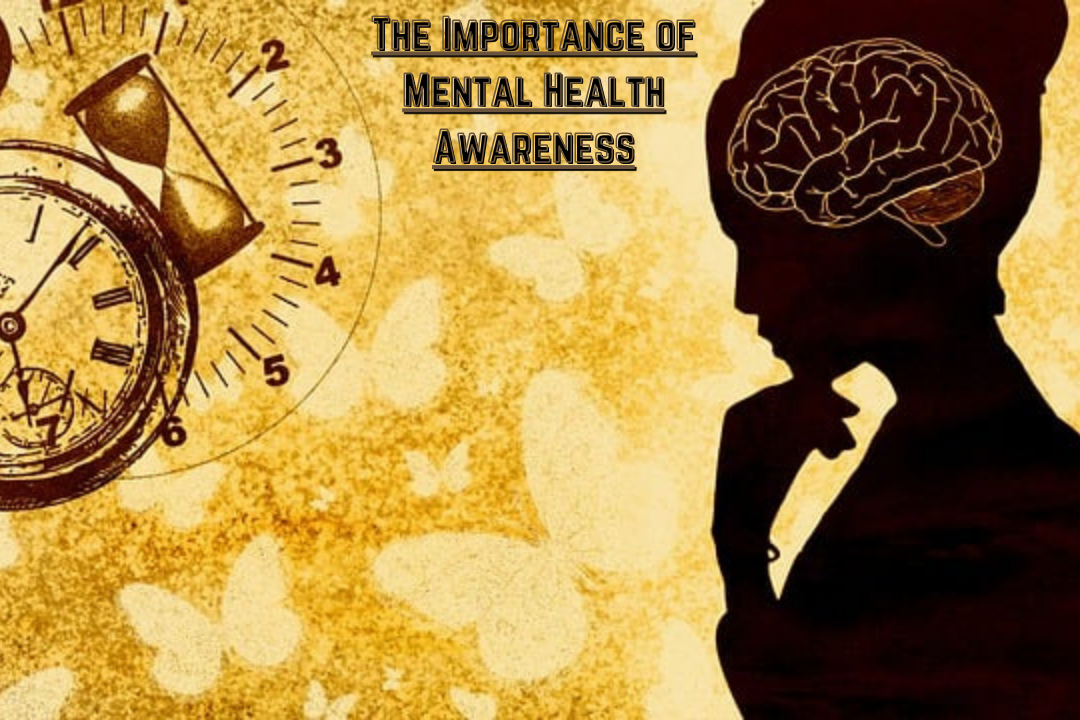The Importance of Mental Health Awareness
Mental health awareness is essential for building a healthier, more compassionate society. It helps reduce stigma, promotes early intervention, improves access to resources, and fosters empathy and understanding. By supporting mental health awareness efforts, we empower individuals to take control of their mental well-being and create a supportive environment for those facing challenges. It is time to raise our voices, break the silence, and ensure that mental health is given the attention and care it deserves.
The Critical Role of Mental Health Awareness in Today’s World
Mental health plays a fundamental role in shaping how we think, feel, and behave. It influences our ability to cope with stress, form relationships, and make everyday decisions. Yet, despite its undeniable impact, mental health awareness remains an overlooked topic in many societies. Promoting mental health awareness is essential for breaking down the stigma, encouraging those struggling with mental health challenges to seek help, and fostering a supportive environment for everyone. This article explores why raising mental health awareness is more crucial than ever.
What Is Mental Health Awareness?
Mental health awareness refers to the recognition and understanding of mental health conditions, their effects on individuals, and how to offer support to those impacted. It involves educating people, preventing mental health issues, and intervening early to promote well-being and reduce the prevalence of mental disorders. When people are aware of mental health concerns, they are better equipped to identify symptoms in themselves and others, seek professional help, and provide the support needed for recovery.
The Societal Impact of Mental Health Issues
Mental health problems can have far-reaching consequences for individuals and society at large. According to the World Health Organization (WHO), around 1 in 4 people globally will experience a mental health condition during their lifetime. This alarming statistic underscores the widespread nature of mental health challenges. If untreated, mental health issues can lead to long-lasting effects such as:
- Reduced productivity: Those struggling with mental health disorders often face difficulties concentrating, making decisions, and completing tasks, which can negatively impact their work and personal life.
- Increased healthcare costs: Untreated mental health conditions often lead to physical health problems, adding to the overall healthcare burden on individuals and society.
- Social isolation: Mental health issues may cause individuals to withdraw from social interactions due to feelings of shame or fear of judgment, exacerbating their condition.
- Higher mortality rates: Disorders like depression and anxiety are associated with an increased risk of suicide, a leading cause of death among young people.
Raising awareness and providing early intervention can help mitigate these risks, improving individuals’ quality of life and benefiting society as a whole.
Why Mental Health Awareness Matters
- Fighting Stigma and Discrimination A major obstacle to seeking help is the stigma attached to mental illness. Many cultures still view mental health problems as weaknesses, which discourages people from discussing their struggles or seeking assistance. By raising awareness, we can challenge these harmful perceptions, normalize mental health conversations, and encourage individuals to ask for help without fear of judgment.
- Promoting Early Intervention Early recognition of mental health issues allows for more effective treatment and can prevent the conditions from worsening. Mental health awareness empowers individuals to spot the signs of mental health problems in themselves and others, leading to quicker access to care. This early action can reduce the risk of more severe consequences like substance abuse, self-harm, or suicide.
- Expanding Mental Health Resources As awareness grows, so does demand for mental health services. This increased demand can lead to better funding for mental health programs, more trained professionals, and improved treatment options. Governments and organizations are more likely to invest in mental health when they see a rising public concern about the issue.
- Supporting Mental Health in the Workplace Mental health awareness is also essential in the workplace. Many employees face mental health challenges that can affect their performance but are hesitant to seek support due to fear of stigma or job loss. Promoting mental health awareness creates an environment where workers feel comfortable discussing their mental well-being, asking for accommodations, and receiving necessary support. This benefits not only the individual but also the overall productivity and morale of the workplace.
- Fostering a Supportive Community Raising awareness about mental health cultivates empathy, understanding, and support within communities. People who are knowledgeable about mental health are more likely to offer help to those in need. This collective support helps reduce feelings of isolation and hopelessness for individuals struggling with mental health issues, significantly aiding their recovery process.
How to Promote Mental Health Awareness
- Educational Programs One of the most effective ways to spread mental health awareness is through educational initiatives. Schools, workplaces, and community groups can implement programs that provide accurate information on mental health, its effects, and available resources. These programs can help dispel myths and reduce the stigma surrounding mental health disorders.
- Public Campaigns and Media Outreach Media, including television, radio, and social platforms, can be powerful tools for raising awareness. Public campaigns can reach wide audiences and initiate conversations about mental well-being. Influencers and celebrities who share their mental health experiences can reduce stigma and encourage others to seek support.
- Workplace Mental Health Initiatives Employers can implement mental health support programs in their organizations. This might include offering mental health days, access to counseling services, and creating a culture of openness where employees feel safe discussing their mental health. Providing training for managers to identify mental health struggles and offer appropriate support can greatly improve workplace well-being.
- Support Groups and Helplines Support groups and helplines provide a safe space for individuals to share their experiences and receive guidance. These resources are particularly valuable for those who feel isolated or unsure where to turn for help. Promoting these services helps connect people to others who understand their challenges and can offer mutual support.
The Future of Mental Health Awareness
The future of mental health awareness holds promise. As society becomes more open to discussing mental health and advocating for change, we can expect to see a reduction in stigma and an increase in available resources. With continued education and outreach, we can create a world where mental health is prioritized, and everyone has access to the help they need to thrive.







I truly appreciate your technique of writing a blog. I added it to my bookmark site list and will
Good post! We will be linking to this particularly great post on our site. Keep up the great writing
Very well presented. Every quote was awesome and thanks for sharing the content. Keep sharing and keep motivating others.
This article is a gem.
For the reason that the admin of this site is working, no uncertainty very quickly it will be renowned, due to its quality contents.
Very practical and actionable tips.